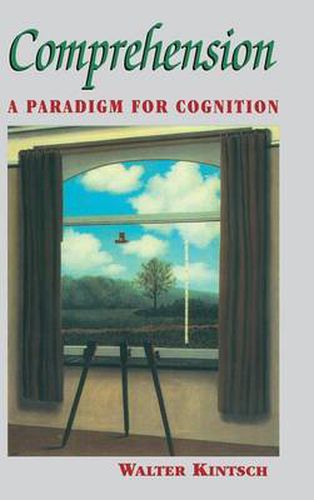Readings Newsletter
Become a Readings Member to make your shopping experience even easier.
Sign in or sign up for free!
You’re not far away from qualifying for FREE standard shipping within Australia
You’ve qualified for FREE standard shipping within Australia
The cart is loading…






In this book, Walter Kintsch presents a theory of human text comprehension and extends his analysis to related areas. Comprehension is conceptualized as a two-stage process: first, approximate, inaccurate representations are constructed via context insensitive construction rules, which are then integrated via a spreading activation constraint satisfaction process. In Part I, the general theory is presented and an attempt is made to situate it within the current theoretical landscape in cognitive science. The second part addresses many of the topics that are typically found in a cognitive psychology text, including how word meanings are identified in a discourse context; how words are combined to form coherent representations of texts, both at the local and global level; what the role is of working memory in comprehension; how relevant knowledge is activated during reading; and what is the distinction between remembering a text and learning from a text. Researchers in the fields of psychology and linguistics will find this to be a most welcome contribution from one of the discipline’s most celebrated scholars.
$9.00 standard shipping within Australia
FREE standard shipping within Australia for orders over $100.00
Express & International shipping calculated at checkout
In this book, Walter Kintsch presents a theory of human text comprehension and extends his analysis to related areas. Comprehension is conceptualized as a two-stage process: first, approximate, inaccurate representations are constructed via context insensitive construction rules, which are then integrated via a spreading activation constraint satisfaction process. In Part I, the general theory is presented and an attempt is made to situate it within the current theoretical landscape in cognitive science. The second part addresses many of the topics that are typically found in a cognitive psychology text, including how word meanings are identified in a discourse context; how words are combined to form coherent representations of texts, both at the local and global level; what the role is of working memory in comprehension; how relevant knowledge is activated during reading; and what is the distinction between remembering a text and learning from a text. Researchers in the fields of psychology and linguistics will find this to be a most welcome contribution from one of the discipline’s most celebrated scholars.